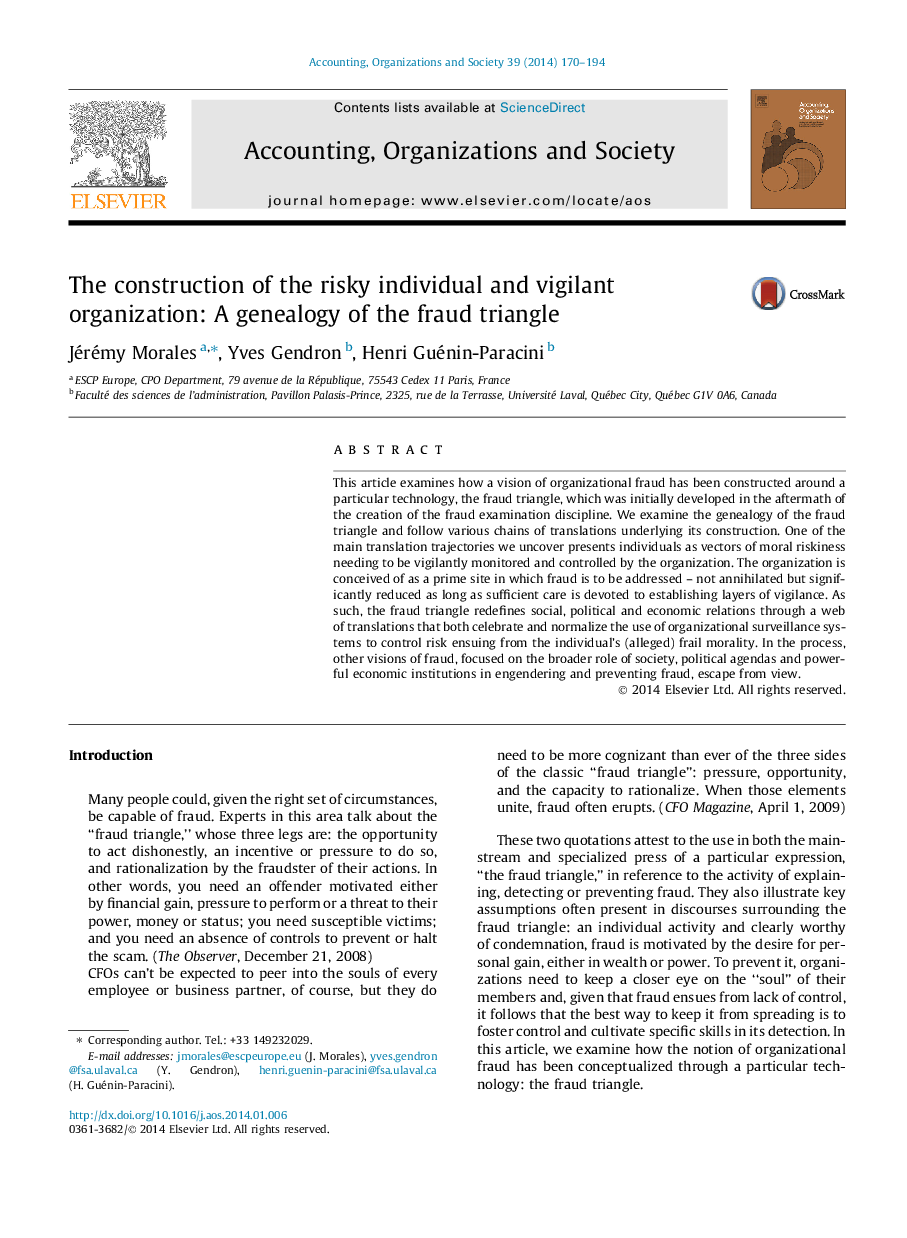| Article ID | Journal | Published Year | Pages | File Type |
|---|---|---|---|---|
| 878642 | Accounting, Organizations and Society | 2014 | 25 Pages |
This article examines how a vision of organizational fraud has been constructed around a particular technology, the fraud triangle, which was initially developed in the aftermath of the creation of the fraud examination discipline. We examine the genealogy of the fraud triangle and follow various chains of translations underlying its construction. One of the main translation trajectories we uncover presents individuals as vectors of moral riskiness needing to be vigilantly monitored and controlled by the organization. The organization is conceived of as a prime site in which fraud is to be addressed – not annihilated but significantly reduced as long as sufficient care is devoted to establishing layers of vigilance. As such, the fraud triangle redefines social, political and economic relations through a web of translations that both celebrate and normalize the use of organizational surveillance systems to control risk ensuing from the individual’s (alleged) frail morality. In the process, other visions of fraud, focused on the broader role of society, political agendas and powerful economic institutions in engendering and preventing fraud, escape from view.
